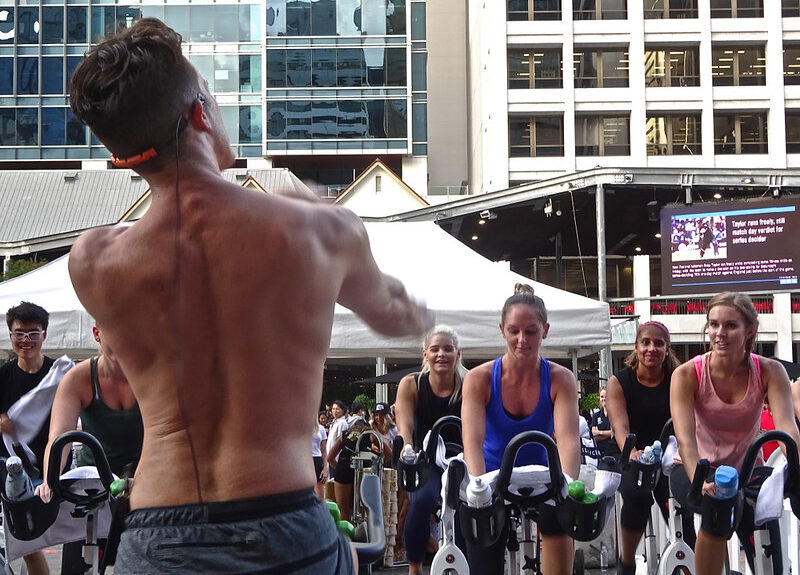Health Science & Health
Men also are concerned with body image
By Sophia Herrera
Brady O’Keefe, 16, stands at 5’ 7” and weighs 125 pounds. Ask him about his self-image, and the summer 2022 NYU Precollege Program student will give you a straight answer: “I try to avoid thinking about what I like and dislike because that will inevitably bring out what I dislike.”
Society, in general, seems to fixate more on the shape of women’s bodies than men’s. But 95% of men reported that they were dissatisfied with their physique, according to a 2013 analysis that has been cited in several more recent research papers, including this one by Bradley University’s The Body Project.
Body image is on the mind of Zain Asif, 27, an NYU undergraduate economics major from Pakistan. “Physical appearance,” he said, pausing from eating lunch at The Marketplace at Kimmel, “is important in the sense that you have to make a good impression towards others … I could see a person and I quickly have a subconscious first impression in my mind. So, you got to make that first impression; that’s really important.”
In workout clothes and carrying a gym bag, Ryan McQuick, 23, a sales associate, had just finished a three-hour workout. “To a certain degree,” said McQuick, who sometimes works out for four hours, “I feel like you have to be positive enough about yourself just to live. But it’s not such a big part of your life that you should [overly] focus on.”
How others view his body doesn’t matter to McQuick.
Teenager O’Keefe said he is not bothered by unsolicited comments that random people might make about his body. But when the people he is close to make negative comments, that hurts.
“When someone close brings something up to me, it’ll make me think about it and I will focus on that for days,” O’Keefe said.
To shed some pounds and feel better about his body, NYU student Asif has taken some deliberate steps.
“I had to drop out of school for a couple of years, and I saw that as an opportunity to develop myself,” he said. “At the time, COVID struck. I had a job where I worked from home. It wasn’t a hectic job, so I had the chance to actually work on my body, especially on my diet.”
He went to the gym daily but mainly focused on what he ate. He cut sugar entirely out of his diet, which his family considered drastic.
“I did receive a lot of criticism from my house members. They were shocked that I was not eating sugar at all … That shocked me as well inside,” Asif said. “That had some really drastic effects as well in the short-term, but in the longterm I feel much better.”
O’Keefe, Asif and McQuick said they believe men worry less about their body image than women.
“Women, I think, are a lot more vulnerable,” McQuick said. “Men are very comfortable with their bodies. They tend to not be too afraid of things like harassment … where[as], with women, that’s an actual concern.”
Men’s body dissatisfaction, O’Keefe said, is “less propagated by media because women’s bodies are … more heavily scrutinized in the public image.”
Added McQuick, “Women’s and men’s body dissatisfaction is the same because we all focus on it for a certain reason; we all want a certain appearance no matter what the difference in the appearance is.”
McQuick, O’Keefe, and Asif all said they believe that men’s body dissatisfaction is an overlooked issue, but, maybe, not as serious as researchers make it out to be.
“If you feel good inside, then, it’s good for you,” Asif says, and that was enough for him.


